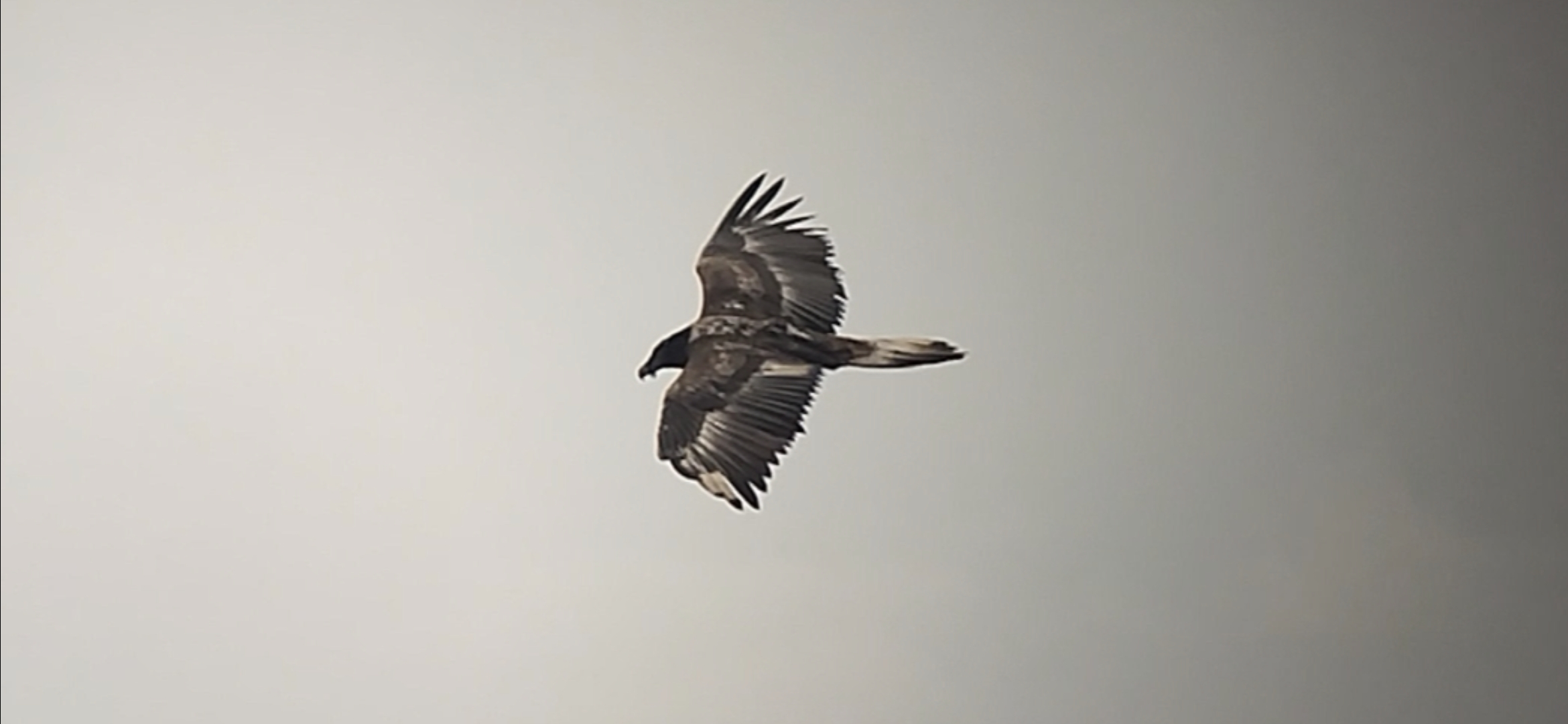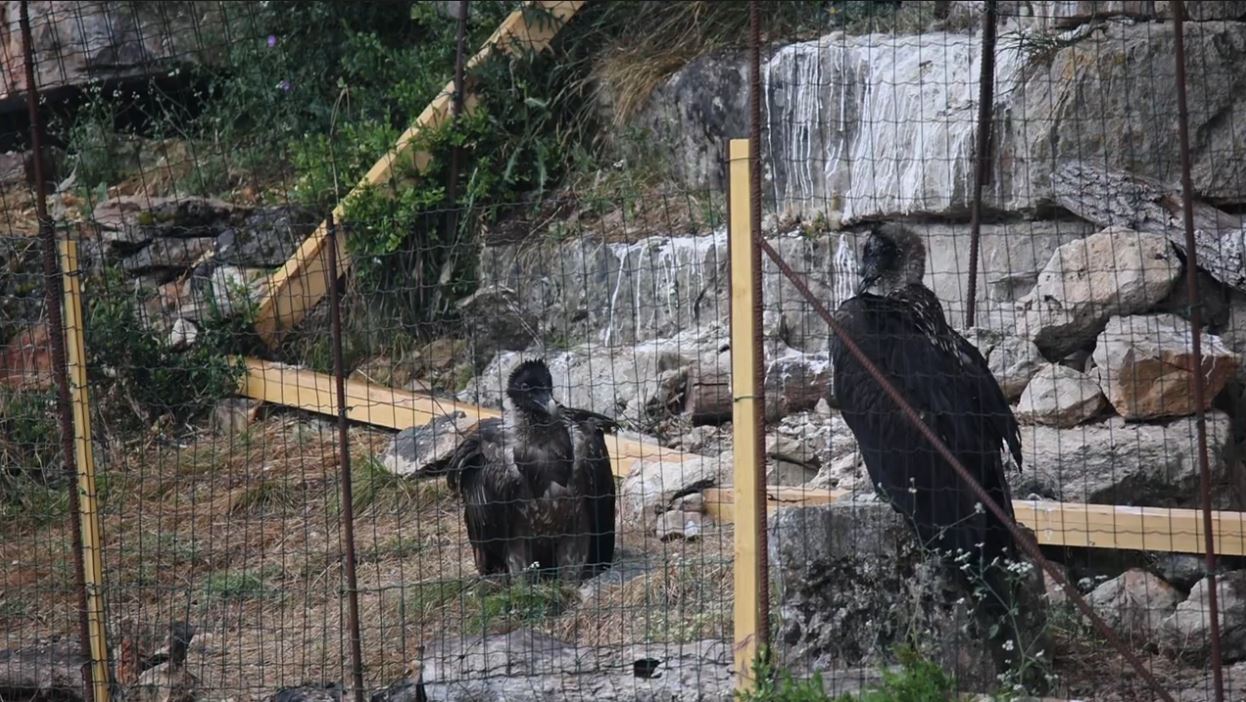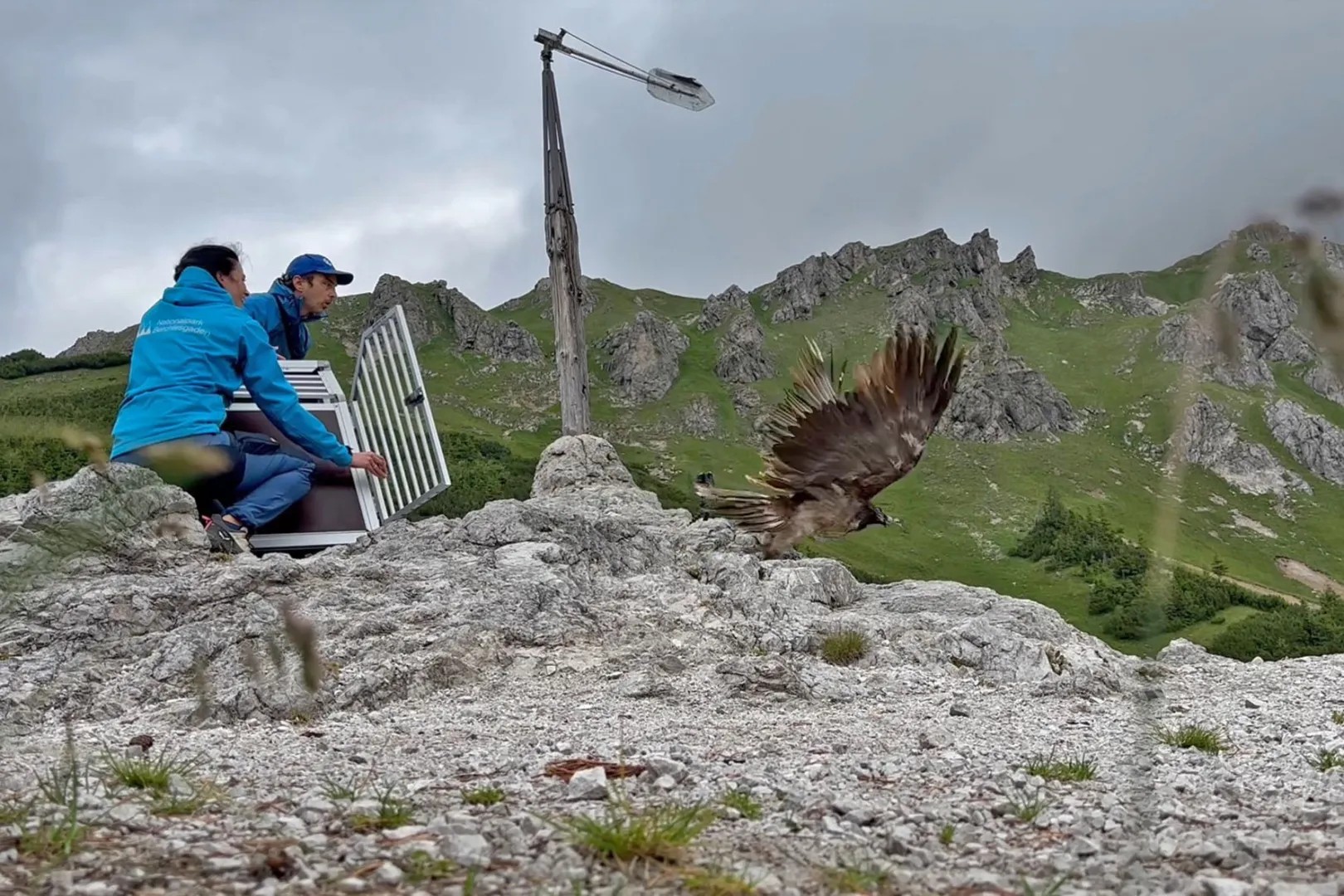As part of its programme to restore the bearded vulture across Europe, the VCF and its partners have started the 2017 release of captive-bred bearded vultures into the several reintroduction/restocking projects across four mountain ranges – Alps, Massif Central, Corsica and Andalusia.
Tomorrow two more birds will be released in Baronnies, in the extreme western pre-Alps, between the Massif Central and the alpine chain. The birds will be presented to the public in a ceremony at the commune de VillePerdrix by Vautours en Baronnies, our local partner managing this new release site, and will then be taken to the platform high up in the mountains, where they will stay until they fledge naturally.
Baronnies is an important stepping stone between the Alps and the Pyrenees, and therefore will serve as the perfect corridor population for a pan European future gene flow. Griffon and black vulture populations have been restored there, so Vautours en Baronnies has now a solid track record and experience on vulture restoration projects. Further, some bearded vultures often use the area for prolonged periods of time – mostly come from the nearby Vercors. The current bearded vulture release is the second on that site following last year´s pioneering one, and happens within the framework of the LIFE GYPCONNECT project, an EU funded project that aims to enhance the establishment of the gene flow between the bearded vultures is the Alps and the Pyrenees. The LIFE GYPCONNECT is also co-funded by the MAVA foundation.
The first release of the year happened in Grands Causses only 2 weeks ago, with our partner Ligue pour la Protection des Oiseaux (LPO). The three nestlings have also been presented to the local community of Nant (Aveyron department), and although it was a rainy day more than 100 people, including many school children, the mayor of Nant and representatives from the Department and from the Parc Naturel Régional (see photos).
Later these three nestlings (all males) have been deposited in a cave following the hacking release method, where birds are released at an age of around 90 days old, one month before they fledge (see photos). In this age nestlings are able to eat and prepare the food alone, are strong enough to defend themselves against other birds of prey or foxes, but are young enough to recognize the release site as their rearing place. Their learning and adaptation capacities are also in their maximum phase.
One of the released nestlings came from the bearded vulture captive breeding center in Guadalentín (managed by the Junta de Andalucía). Its parents reproduced two years ago for the first time. This breeding season the female laid again a double clutch, but unfortunately the chick of the second egg died just before hatching. The father shows always nervousness towards the adoption of nestlings, and this year again it was decided to try natural hatching in the nest. The whole hatching and rearing process could be monitored thanks to remote video cameras and no incidents occurred. The other two males are siblings coming from the Richard Faust breeding centre (Austria, co-managed by EGS and the VCF). The older one hatched in the nest and has been successfully reared by his parents until it was sent to Grands Causses. The second hatched in the incubator and during his first two months was reared by a foster pair and later by his own parents. Bearded vultures have an aggressive behavior called “cainism”, in which the first chick always kills the second. That’s why in captivity the second egg is always removed a few days before hatching and as soon as the chick is around 7 days old it is sent for adoption by a foster pair.
Releases in the Grands Causses started in 2010 and with these three 14 birds have been released. Since 2016 the releases are done within the framework of the LIFE GYPCONNECT project.
Bearded vultures take 9 or 10 years to start breeding, so we will have to wait a few more years for the next milestone in the project – the first nest in the wild in the Baronnies or the Grands Causses. In the meantime, the VCF, LPO and Vautours en Baronnies will continue to work together to re-establish this crucial population in the pre-Alps/Cevennes, within the LIFE GYPCONNECT project.
Photos: VCF



